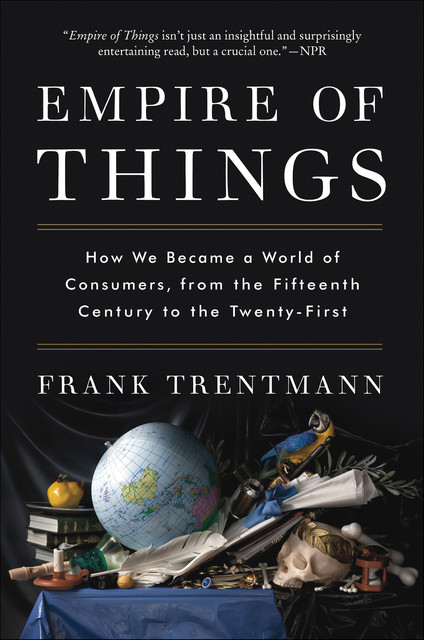
Read in our apps:
iOS
·Android
Empire of Things
- About
- Quotes5
- Readers5
- On the bookshelves
This book is currently unavailable
1,566 printed pages
- Original publication
- 2016
- Publication year
- 2016
- Publishers
- HarperCollins, Harper
Quotes
- memento2011has quoted6 years agoWhile precocious, then, consumption in Renaissance Italy also remained precarious, kept in check by a series of material and moral constraints. Excess and opulence retained a stigma of sin and corruption. Splendid possessions could not simply satisfy individual desire but needed civic legitimation
- memento2011has quoted6 years agoBut, as has become clear once more in recent years, things are not only bearers of meanings or symbols in a universe of communication. They also have material forms and functions.
- memento2011has quoted6 years agoWith peace restored, mass consumption was called upon to absorb the expanded manufacturing capacity created during the war. To make this happen, Galbraith wrote, production could no longer just satisfy wants: it had to create them, with the help of advertising and salesmen. A vicious cycle was set in motion that propelled people to live beyond their means (with the help of consumer credit), entrenched business more deeply at the centre of power, and, perhaps most worryingly, favoured individual materialism over civic-mindedness, creating, in his famous phrase, an atmosphere of ‘private opulence and public squalor’.12
fb2epub
Drag & drop your files
(not more than 5 at once)

